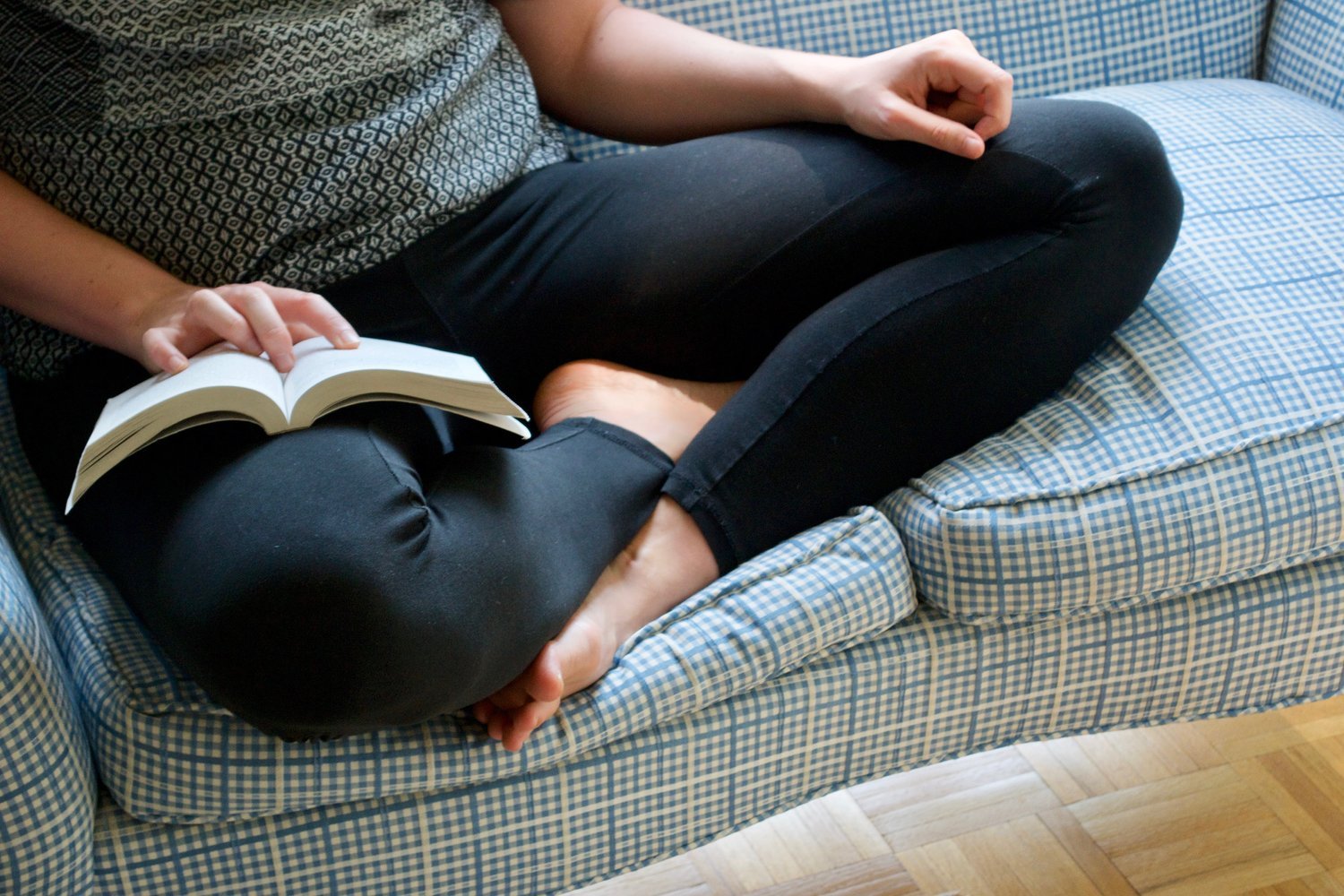Blog
3 ideas on how to help you know what your most authentic self wants
Some time ago, I argued that if you truly know yourself, then it can be no big deal if people don’t agree with your decisions.
Reflecting on it, I realize that I wrote about “knowing yourself” as if it was the most straightforward thing in the world.
So, an important addendum:
“Knowing yourself” is not the most straightforward thing in the world.
In fact, it can be freaking hard.
For most people, it’s not that don’t know yourself at all. You probably do know that you love onion rings and reality TV, for example.
But if you struggle to make decisions, or to chart a path through life…you probably don’t know yourself as deeply as you might.
Here’s three tips that I’ve found helpful — for myself, and for my clients — in figuring out “how to know” yourself or what you want:
1. “Knowing” is more often done in the body, than the head.
Our smart brains can create a compelling argument for every side of the issue. That’s why pro-con lists can sometimes make us feel like we’re spinning out more, not less. By contrast: when we check in with our body sensations on a topic, we’re more likely to get a clearer, less variable answer. (More on that here.)
2. It’s often easier to feel our “no” than our “yes.”
For many people, it is easier to feel a “no” in your body than a “yes” in your body. My “no” is pretty consistent, and feels like a closed down and tight feeling in my heart + belly. (Wondering what your “no” feels like? Think of something as a clear “no” — an activity, a person, a job — and notice what sensations arise in your body.)
For most people, the experience of “yes” is more variable, and often more subtle, than a “no.” For me, sometimes a “yes” is just a mild feeling of spaciousness or openness. Sometimes it’s an almost imperceptible fluttering. If this idea of “checking in with your body” feels new to you, I suggest starting with finding a “no” feeling.
3. If your nervous system is highly agitated, it may be very hard to “know” anything.
Things that can agitate our nervous system include: being constantly busy, being exhausted, being chronically stimulated (this is why it can be hard to know what we want when we spend all of our free time on our phones).
If our nervous systems are agitated, it’s like an enormous amount of static, gumming up the phone line between you + yourself.
Some of us deal with this static by leaving our bodies — spending most of our lives as a floating head. In my experience as a coach, this is very common, especially with smart people. Whenever we do slow down or have quiet, we may feel extremely uncomfortable or agitated (it’s all of that static!) If this describes you, the first step is to calm your nervous system. Here’s one of my favorite daily practices to help with that.
…
For what it’s worth, when I say that it can be hard to know yourself, I speak from personal experience.
I spent years making pro-con lists about major life decisions, or doing what seemed like a “good idea” (which was usually shorthand for what seemed most impressive), because I didn’t actually know what I wanted. I was alternatively skeptical of people who seemed to know themselves + what they wanted on a core level…and deeply jealous.
And now, I’m one of them.
Which is to say: “knowing yourself” — knowing what you want in your bones and in your gut — it’s real.
And — maybe even more importantly — it’s achievable.
…
As always, I’m rooting for you in the week ahead. You’ve got this.
Katie
p.s. Knowing yourself is a skill — like tying your shoes. Some people get it more intuitively, and for others, it takes a bit of practice + maybe a bit of support.
Life coaching can be very, very helpful with this. I have one opening for a new client to start in May; if you'd like to snag that spot to work with me, you can learn more + reach out here.
Sign up for my newsletter to get helpful + encouraging essays like this every Sunday morning. It’s free!
Confidence, women, and success
Here’s something I can’t get off my mind:
A review of personnel records found that women working at HP [Hewlett-Packard] applied for a promotion only when they believed they met 100 percent of the qualifications listed for the job. Men were happy to apply when they thought they could meet 60 percent of the job requirements. […]
Under qualified and underprepared men don’t think twice about leaning in. Overqualified and overprepared, too many women still hold back. Women feel confident only when they are perfect. Or practically perfect.
This is from a fantastic Atlantic piece by Katty Kay and Claire Shipman, called “The Confidence Gap.”
And it’s that last sentence that I can’t seem to forget: “Women feel confident only when they are perfect.”
Of course, it’s worth having a larger, more complex conversation about both women’s under-confidence and men’s (at times) over-confidence.
But, for this weekend, I just want to ask: In what area of your life are you waiting to feel perfect, in order to feel confident?
You’ve got this.
Katie
Sign up for my newsletter to get helpful + encouraging essays like this every Sunday morning. It’s free!
My favorite poem (and reminder) about being authentic
Here’s something that touches my heart, every time I read it:
It doesn’t interest me
what you do for a living.
I want to know
what you ache for
and if you dare to dream
of meeting your heart’s longing.
It doesn’t interest me
how old you are.
I want to know
if you will risk
looking like a fool
for love
for your dream
for the adventure of being alive.
It doesn’t interest me
what planets are
squaring your moon...
I want to know
if you have touched
the centre of your own sorrow
if you have been opened
by life’s betrayals
or have become shriveled and closed
from fear of further pain.
I want to know
if you can sit with pain
mine or your own
without moving to hide it
or fade it
or fix it.
I want to know
if you can be with joy
mine or your own
if you can dance with wildness
and let the ecstasy fill you
to the tips of your fingers and toes
without cautioning us
to be careful
to be realistic
to remember the limitations
of being human.
It doesn’t interest me
if the story you are telling me
is true.
I want to know if you can
disappoint another
to be true to yourself.
If you can bear
the accusation of betrayal
and not betray your own soul.
If you can be faithless
and therefore trustworthy.
I want to know if you can see Beauty
even when it is not pretty
every day.
And if you can source your own life
from its presence.
I want to know
if you can live with failure
yours and mine
and still stand at the edge of the lake
and shout to the silver of the full moon,
“Yes.”
It doesn’t interest me
to know where you live
or how much money you have.
I want to know if you can get up
after the night of grief and despair
weary and bruised to the bone
and do what needs to be done
to feed the children.
It doesn’t interest me
who you know
or how you came to be here.
I want to know if you will stand
in the centre of the fire
with me
and not shrink back.
It doesn’t interest me
where or what or with whom
you have studied.
I want to know
what sustains you
from the inside
when all else falls away.
I want to know
if you can be alone
with yourself
and if you truly like
the company you keep
in the empty moments.
(This poem is called “The Invitation,” and is by Oriah Mountain Dreamer).
Is it cheesy? I had a moment of worrying that after I decided to share it with you. But more than anything, I think it might feel a tiny bit cheesy because we’re not used to such open-heartedness and earnestness about what matters. We’re not used to someone saying explicitly, I want to know the real you, and I want you to know me.
You know what? I’ll say it, too. I want to know the real you, and I want you to know me.
Don’t you?
You’ve got this.
Katie
If this essay resonated with you, you'll love my newsletter. Sign up for free + get new ideas every Sunday!
On "emotional straightjackets" + being your authentic self
“Cool is an emotional straightjacket.”
It’s a quote by Brené Brown, via Caroline Donofrio’s great article. Brown is saying that if you spend all of your energy trying to be “cool,” you cut yourself off from your goofy, weird, messy, awkward, wonderful authenticity. It’s like putting your true self in a metaphorical straightjacket. It limits your ability to connect with others and do your best work in the world.
First of all: amen.
But second of all, it got me thinking about how many other emotional straightjackets we have. Here are some for me:
Success
Being well-liked
Not disappointing people
On one hand, all of these are great qualities! Who doesn’t want to be a successful, well-liked person who never disappoints colleagues or loved ones?
On the other hand…it’s impossible to truly “have” these things. Even if you do your absolute best, you’ll still disappoint someone or have someone not like you. And, of course, there’s always somewhere higher to strive for in terms of success.
Yet, we still strive. And the process of striving often requires putting our deeper, messier, mushier needs or impulses in a straightjacket — locking them up and inhibiting their movements so we can do what we have to do, goshdarnit!
The experience of having all these parts of ourselves put in a straightjacket… isn’t fun. Most of us crave deeper authenticity, connection, creativity, or more sparkling energy, but we’re also afraid to let ourselves out of a straightjacket.
…
You probably know this, at least on some intellectual level. That you sometimes “straightjacket” yourself in the pursuit of things that might not be truly worth it. But do you know it in your core or your gut?
Would it be helpful to remind yourself, when you feel yourself feeling tired or frustrated or anxious:
“Success” is an emotional straightjacket.
“Being well-liked” is an emotional straightjacket.
“Not disappointing people” is an emotional straightjacket.
Or ________ (you fill in the blank) is an emotional straightjacket.
(Of course, this is not to say that you can’t strive to do good work or to be a good person. It’s more that the level at which we seek to achieve these things can be unachievable.)
Does that resonate? For me, it lands far more deeply than just saying, “You need to let go of trying to be well-liked!”
And I’m curious, what is your emotional straightjacket? Share your comment below!
As always, I’m rooting for you. You’ve got this.
Katie
If this essay resonated with you, you'll love my newsletter. Sign up for free + get new ideas every Sunday!




